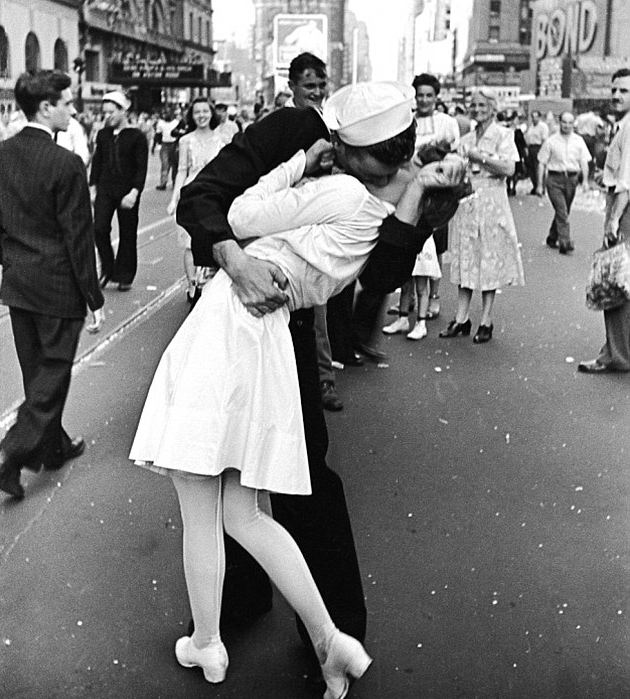
According to a recently made survey which involved 25,000 people in 23 major countries, yes they are.
Roughly, the narrower the gap between men and women in economical and socio-political terms, the less the women of those countries embrace the importance of feminism in those achievements.
As if this weren’t already bad enough, it seems they also romantize toxic masculinity.
Let’s go down to numbers and sordid details:
– Only 1 in each 10 German women considers herself a feminist. In Turkey, for instance, that number doubles.
– In Germany, 2 out of 10 women disapprove of the #metoo movement. The Danish women are the champions in this depressing panorama since 2 out of 5 fear that this movement against rape culture and sexual harassment creates obstacles to enjoyable relationships between men and women.
– More than a quarter of German women think that wolf-whistling is acceptable. This number is only outranked by Denmark in which a third of the women are pretty much O.K. with this toxic male behaviour. On the other hand, in Turkey, only 5 in 100 women find the same sort of male entitlement acceptable.
In conclusion: more women in Germany feel offended by being called a feminist than by being catcalled by guys on the street.
And all these findings do not come as a surprise to me since they really do match my experience.
Me, as a woman growing up in southern Europe, who disliked being seen as an object on display and having judgements of strangers being thrown at, always found amazing how some female tourists from Central and Northern Europe found charming the toxic behaviours of Latin men. During some “girl talks”, quite a few confided to me that, unfortunately, in their country men were not as “passionate” or “warm” like the Portuguese, Italian or Spanish ones. That German, Swedish or Danish men hardly ever told them how good they looked and seldom did they give them compliments. Apparently and according to their narratives, hardly ever men took the initiative to courtship so, it was refreshing, for them, being in a country where women were “appreciated”.
Let’s talk then about female appreciation and focus on a survey made last year which included most European countries and focused on the time each gender dedicated to household chores. Let’s take the example of the forever masters of wolf-whistling, Italy!
In Italy, 81% of the women performed daily tasks such as cleaning and cooking. Only 13% of the men did the same. In all the other Mediterranean countries the numbers aren’t very different while, in Germany, the number of women in the same circumstances lowers to 72% and the percentage of men who seem to enjoy domestic chores raises ro 29%. Not surprisingly, that number of “cold” but highly active males when it comes to domestic tasks is even higher in Scandinavia.
Yes ladies, to your disgruntlement, one thing does not seem to come without the other.
“Hot-blooded” guys who feel entitled enough to wolf-whistle strangers on the street but who are devoted parents and companions and who are equally fiery about sharing annoying tasks with their partners only exist in your minds.
So, it seems that women who are for long exposed to more social equality between genders tend to mistake “appreciation” for objectification and submission.
To make it simple, the traditional concept of seduction implies the active use of specific lines and codes which foresee the surrender of the target who is, naturally, the woman. Praising is the main tool. Praising her eyes, her lips, her body or her intelligence. The source of inspiration for the appraisal varies according to the level of training and smartness of the seductive agent who is, obviously, the man.
Therefore, in a culture where “decent” women have to be seduced, the charm of the seducer relies on his ability to praise the prey and his value is based on how successful he is in turning a “saint” into a ‘whore”.
The secret of seduction is never telling the truth, even less in a direct manner. Everyone sticks to innuendos. In order to get to the point of the whole seduction process, men and women play roles, cover their true intentions, send mixed signals and act according to a script defined by ancestral habits. The man is active, the female is passive. He plays to win and if he wins, she is taken and then becomes one of his “conquests”. These mises-en-scène take place on the street, at the working place, at the supermarket, at school, on the metro, at the doctor’s office.
With or without women’s consent.
Female consent isn’t even a variable to be considered in these equation. Because in a culture in which women have to play “hard to get” in order to be seen as “honorable” – even when they are interested in the man in question – what’s the real value of a “no”?
Thus, the questions that arise here are several:
Why do women who, through the feminist ideology, have achieved so many social and political rights, feel the need to be treated like a object, by being praised by stranger men?
Why do they think that equality between genders is a threat to the relationship between genders?
Why can’t they conceive “passion” without subordination?
And most importantly, why do they show contempt towards feminism, the exact same ideology which grated them all the rights they now enjoy?
Is privilege creating a cultural retrocession when it comes to the way women see themselves in the world?
It is likely that the conquests achieved in the realm of female rights are too recent to contradict the solidly founded archetypes based on legends, fairytales and centuries of gendered-based narratives. In more equalitarian social circumstances, the need for men to play the male traditional role and the women to play their “feminine but not feminist” part tends to be less therefore, it seems that these women start missing being treated as subordinates.
Looking at the results of this survey, it seems there is no middle ground. As a woman, either you are treated like an object/ prize/ princess and praised, seduced, wolf-whistled or catcalled, or enjoy real social rights like smaller gendered gap, equal employment rights and universal nursery care.
In such dimension where women would prefer to be seen as objects of desire and take for granted the social rights feminists have fought for, there seems to be less and less room for healthy interactions between two adults who share the common goal of reaching whichever type of intimacy with one another and be clear about it, in a state of equality.
That’s why feminism is still necessary. Even if privileged women think it is not.
For more details about the above mentioned surveys , check YouGov-Cambridge Globalism Project (https://yougov.co.uk/topics/international/articles-reports/2019/05/01/about-yougov-cambridge-globalism-project) and https://www.ine.pt/scripts/wm_v_final/index.html?lang=pt




